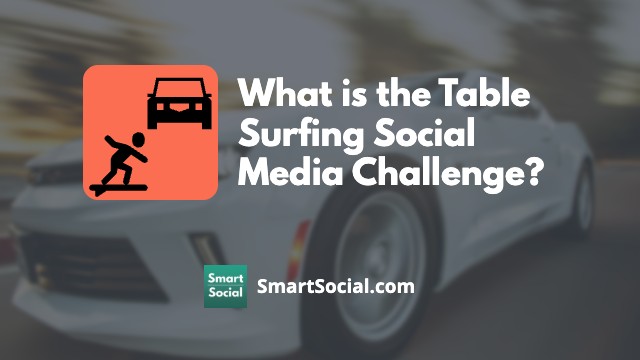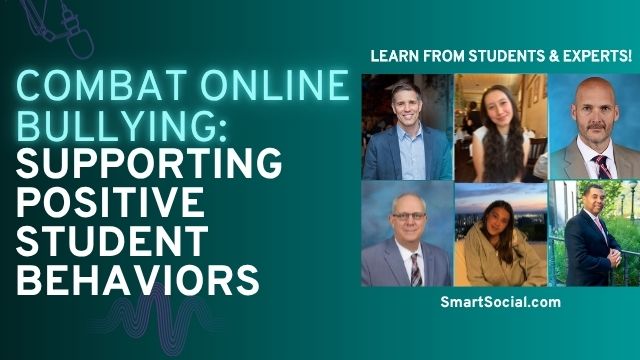How to Get Comfortable Talking about Anxiety
Green Zone App
(Click here to learn more)
Dangerous Social media challenge
(Click here to learn more)
Red Zone App
(Click here to learn more)
Gray Zone App
(Click here to learn more)
We sat down with Scilla Andreen, who is the CEO and Co-Founder of IndieFlix and the founder of the IndieFlix Foundation. Scilla produced the movie "Angst", a movie that teaches students and parents how to dialogue about anxiety. Learn how you can become comfortable talking about anxiety and mental health.
Listen along on our podcast
Key takeaways for becoming comfortable talking about anxiety
- Nobody wants to talk about mental health because of the stigma it has. So, the only way to make progress and help normalize the conversation is to sit shoulder-to-shoulder in our communities and witness it together. The more you discuss mental health the more you can talk about it.
- Everybody has anxiety, it’s actually really healthy. Due to technology, social media, and constantly being inundated with information, anxiety is on the rise.
- Snapping, music, art, and journaling can all help calm the body. Anything that helps to get your mind out of that racing, panic, survival mode and moves the brain waves to the frontal lobe to the executive function of the brain.
Tell us a little bit about the movie “Angst”
“Angst” is a documentary created to break the stigma around anxiety. The goal of the documentary is to get people talking about anxiety and normalize the conversation around mental health. We host community screenings in schools and corporations, around the world with films like: “Finding Kind”, which is about bullying and responding with kindness, or “Empowerment Project”, which is about ordinary women who do extraordinary things, or “Screenagers” which is about growing up in the digital age, and now “Angst” which is about mental health.“Angst” is light, hopeful, and full of resources. The documentary honors our mission at the IndieFlix Foundation, which is to change the world within a minute of viewing.
Why do you do community screening of “Screenagers”?
It all started with a little movie called “Finding Kind” which Lauren Paul and Molly Thompson made about bullying. After seeing the movie for the first time, I immediately wanted to connect and talk to people about it. So, we started screening it in schools and we saw the transformative effect it had. Then we did some testing with Empowerment Project. When you watch “Screenagers” offline, that’s progress, that's where transformation takes place.Anxiety, in particular, and mental health are taboo topics. Nobody wants to talk about mental health because of the stigma it has. So, the only way to make progress and help normalize the conversation is to sit shoulder-to-shoulder in our communities and witness it together. Suddenly it's okay to talk about mental health and anxiety because you all were in that room together talking about it. The more you talk about it the more you can talk about it.
Is anxiety healthy?
Everybody has anxiety, it’s actually really healthy. Due to technology, social media, and constantly being inundated with information, anxiety is on the rise. There isn’t a vocabulary for anxiety yet and it’s not an open conversation. So, it’s important learn how to be able to practice prevention, self-care, and wellbeing at an early age so we don't have to go past our tipping point. That's the key.
What is the difference between above the neck treatment and below the neck treatment?
Dr. Jerry Bubrick who is a Ph.D. specializes in anxiety disorders at the Child Mind Institute speaks to that in “Angst”. Above the neck treatment and below the neck treatment are viewed differently and treated differently. In Seattle at the Harborview Medical Center, one of the best trauma emergency rooms in the country, if you go in there for mental health they don't have a way to triage that. They don't know how to treat anxiety. So they're doing a whole movement to create that ability to treat in emergency rooms. It seems to be happening more often.Anxiety is also on the rise in young people because their brains are still developing and they're dealing with social media. So, young people kind of go into survival mode. We need to step back, have a little mindfulness. The goal is that we walk away with balance in our lives, and my hope is that we will figure out a way to connect more as human beings. To be there for each other to sort of grow that social-emotional aspect.
What are your favorite tips for managing anxiety?
While making "Angst", I learned so many cool little tools, resources, and tricks. I personally have had a couple of anxiety attacks. I didn't know what they were, I thought I was having a heart attack. A trick I like to use is grabbing ice cubes. You can't help but think about how cold your hands are. Talking is also a really powerful way to help anxiety, even though it's the last thing you want to do. Talking can make you use a motor function because you have to make a sound when you form a sentence.Snapping, music, art, and journaling can all help calm the body. As much as I would say we don't want to text, pick up your devices. Texting a friend is not a bad thing to do. Anything that helps to get your mind out of that racing, panic, survival mode and moves the brain waves to the frontal lobe to the executive function of the brain. It's like a muscle. We have the ability to change our own brains. Mindfulness is helpful. We have the ability to do this and as Michael Phelps says in the film we have these tools and we have what it takes to get through it. Sometimes we forget that the ability to change our brains is always an option and we need to practice it so that we can reach for it on auto-pilot. And that we can also be there for each other.
How can families see “Angst”?
The quickest way is to go to our website and you can also get there through IndieFlix. It's only available in community screenings right now. It comes with marketing tools, ways for you to help fill your community in the space. It also comes with a moderator's guide and discussion points. We're creating a curriculum and social-emotional program that comes with it. It's all part of the package. We don't want to just hop in and have a screening, a great conversation, and then leave. We want to leave you with materials that keep the conversation going.
Protect your family and enter for a chance to win cool prizes
Become a member or log in to learn more on this topic
Protect your family and enter for a chance to win cool prizes

., start learning from this page to earn points!*
Hello, I'm Josh, the founder of SmartSocial.com.
Don't leave this page until you fill out our feedback form that will appear after you learn from the resources...
Become a Very Informed Parent (VIP) to get our social media suggestions in your email every Tuesday & Thursday.



Hello, I'm Josh, the founder of SmartSocial.com. Protect your family by taking my 1 minute quiz
This quiz will help you understand how safe your family is


Schools & Districts: Partner with us to protect your community online
Our remote presentations (and website) teach over a million parents and students each year how to be safe so they can shine online. We teach students how their accounts can be used to create a portfolio of positive accomplishments that impress colleges and employers.


Join Our Smart Social Podcast
each week on iTunes
With over 500 episodes, Josh Ochs interviews psychologists, therapists, counselors, teachers, and parents while showing you how to navigate social media to someday shine online.
Listen on:



.jpg)
.jpg)
.jpg)


